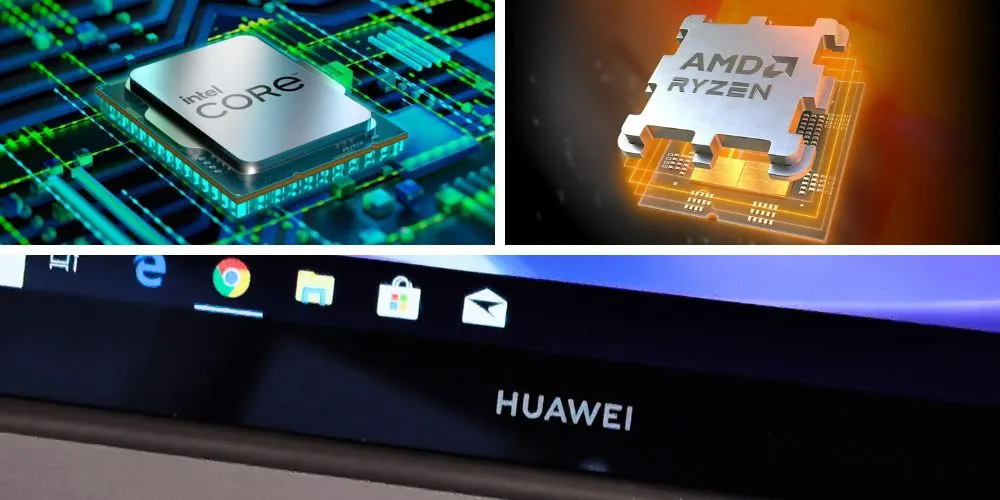Key Points:
- Intel’s ability to retain the license while AMD could not obtain a similar one raises questions about fairness and consistency.
- The move has allowed Huawei to maintain a growing global laptop market share, impacting both companies’ revenues and market positions.
- Plans to revoke licenses were initially proposed but later shelved for unspecified reasons, highlighting uncertainties in U.S. regulatory decisions.
- The license granted to Intel is expected to expire later this year, and there is no indication of renewal, affecting future chip sales to Huawei.
Intel has successfully weathered an attempt to halt its hundreds of millions of dollars worth of chip sales to Huawei, providing the chipmaker an extended period to continue supplying the heavily sanctioned Chinese telecoms company. The effort to revoke the license allowing Intel to ship advanced central processors to Huawei was instigated by rival Advanced Micro Devices (AMD) and China hawks seeking to restrict all sales to Huawei.
U.S. President Joe Biden faced pressure to revoke the license, initially issued by the Trump administration, which enabled Intel to supply advanced central processors for Huawei laptops. AMD argued that it was unfair not to receive a license similar to Huawei’s for chip sales. However, Intel’s ability to retain its license while AMD could not obtain similar permission underscores the uneven and uncertain landscape companies navigate as the U.S. endeavors to limit Beijing’s access to sophisticated American technology.
The license retention has allowed Huawei to maintain a small but growing share of the global laptop market, while AMD lost out on significant sales to the Chinese-sanctioned firm. The move has raised questions about the fairness and consistency of the licensing process, affecting both companies’ revenues and market positions.
Intel’s majority share of CPU sales for Huawei laptops has played a pivotal role in Huawei’s laptop offerings, giving the company a competitive edge in the market. Meanwhile, AMD’s share of sales for Huawei laptops containing its chips has significantly declined from 47.1% in 2020 to 9.3% in the first half of 2023, according to internal AMD presentation data sourced to NPD and GfK.
Despite Huawei’s addition to the trade restriction list in 2019, the Commerce Department granted certain U.S. suppliers, including Intel, special permission to sell specific items to the Chinese telecoms giant in late 2020. AMD’s application for a license to sell similar chips was submitted in early 2021 but remained unanswered.
Last year, the push to revoke licenses gained traction, with the Commerce Department initially planning to address the licensing discrepancy. However, the plans were later shelved for unspecified reasons.
The license granted to Intel is expected to expire later this year and is unlikely to be renewed. Meanwhile, Huawei continues to rely heavily on Intel chips for its laptops, with the company’s share of sales in China growing from 2.2% in 2018 to 9.7% in 2023, making it China’s third-largest laptop manufacturer.





